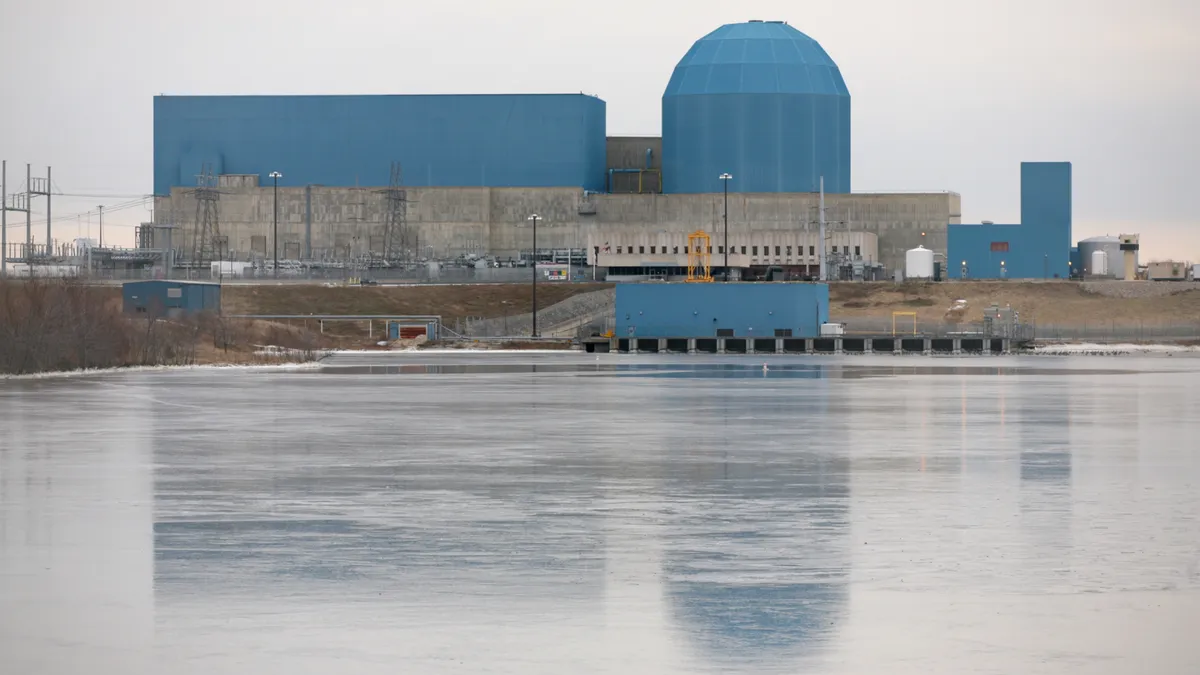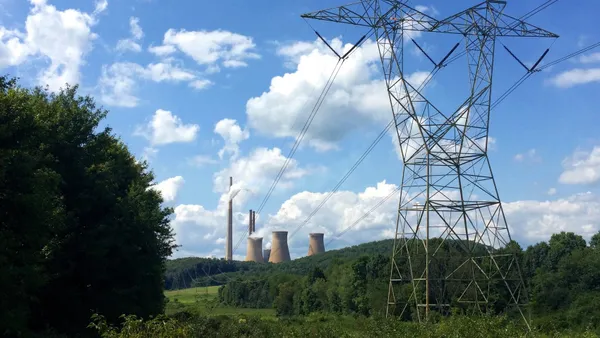Dive Brief:
- The U.S. District Court for the Northern District of Illinois last week dismissed challenges to an Illinois program aimed at supporting nuclear generation, finding opponents lacked standing and had not exhausted their options in front of federal regulators.
- The Illinois Legislature last year passed the Future Energy Jobs Act, providing $235 million in annual Zero Emissions Credit (ZEC) payments to Exelon’s Quad Cities and Clinton nuclear plants. Independent generators cried foul, and argued the payments interfered in wholesale markets, which are regulated by the Federal Energy Regulatory Commission (FERC).
- But District Judge Manish Shah determined the ZEC program "falls within Illinois’s reserved authority over generation facilities." Generators say the decision would "effectively strip FERC of its authority" over interstate power markets and have appealed to the United States Court of Appeals for the Seventh Circuit.
Dive Insight:
In a win for state generation programs, the Illinois District court ruled decisively that the state has authority to subsidize nuclear generation, and that the ZEC program did not violate the implicit authority granted by the Constitution, allowing the federal government the right to regulate interstate trade.
"The alleged harm to out-of-state power generators who will be competing in auctions against subsidized participants is not clearly excessive," the court ruled, when balanced against "weighty and traditional areas of permissible state regulation."
The court's decision aligns with Exelon's argument. The utility said states have the legal authority to determine their fuel mixes, noting FERC's support for similar renewable energy credit (REC) programs in the past.
The 2016 Supreme Court case Hughes v. Talen Energy, which struck down a Maryland program to support gas generation, specifically prohibits such state intrusions on wholesale power auctions. But Exelon lawyers argued in a legal brief that Justice Ginsberg's narrow ruling intended to allow for state support programs like RECs and ZECs.
"Hughes’s rule was intentionally narrow: a payment sets wholesale rates only if the state conditions payment on a wholesale sale," they wrote. "Plaintiffs seek to expand Hughes, but the Court should not do what Hughes carefully avoided."
While market issues are still being closely watched, similar programs have been proposed in other states. New York has a similar program which aims to support its nuclear fleet, and its payments for zero-emission are also being challenged by generators. And New Jersey and Pennsylvania are also preparing for similar battles over struggling nuclear fleets.
PJM Interconnection's independent market monitor was among those challenging the Illinois ZEC program. Monitoring Analytics argued that the subsidies “unlawfully intruded” on FERC’s exclusive authority over wholesale interstate electricity sales under the Federal Power Act.
Opponents of Illinois' program said it is preempted by FERC authority, but the court ruled this is "too broad a theory of preemption and would inappropriately limit state authority."
So long as FERC can address any problems the ZEC payments create, "there is no conflict," the judge ruled. "And nothing in the complaints suggest that FERC is hobbled in any way by the state statute."
Independent generators immediately appealed to the Seventh Circuit, hoping to get the decision thrown out.
"If upheld, the Illinois decision would effectively strip FERC of its authority to regulate wholesale markets, would harm ratepayers, and threaten FERC’s ability to drive investment in energy infrastructure," David Gaier, NRG Energy spokesperson, said in a statement. "We call on PJM and FERC to put into place rules supporting competitive electricity markets, protecting ratepayers who risk losing billions of annual savings driven by competition."
This post has been updated to include NRG's reaction to the ruling and information on the appeals court filing.















